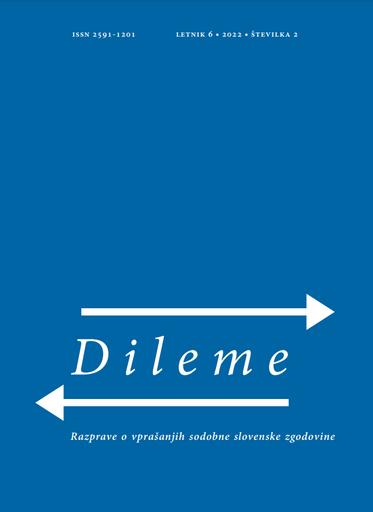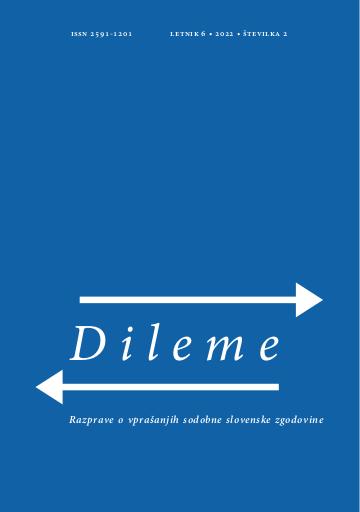
/
Serijske publikacije
/
Dileme
Bogdan Radica in Slovenci

Avtor(ji):Igor Grdina
Leto:2022
Založnik(i):Študijski center za narodno spravo, Ljubljana
Jezik(i):slovenščina, angleščina
Vrst(e) gradiva:besedilo
Ključne besede:Bogdan Radica, Slovenci, Anton Korošec, Louis Adamič/Adamic, Jugoslavija, Bogdan Radica, Slovenians, Anton Korošec, Louis Adamič/Adamic, Yugoslavia
Avtorske pravice:

To delo avtorja Igor Grdina je ponujeno pod Creative Commons Priznanje avtorstva-Nekomercialno-Deljenje pod enakimi pogoji 4.0 Mednarodna
Datoteke (1)

Ime:Dileme6_2a.pdf
Velikost:2.99MB
Format:application/pdf
Stalna povezava:https://hdl.handle.net/11686/file36982
Opis
Bogdan Radica (1904–1993), who began studying art history at the University of Ljubljana in 1923, left interesting accounts of Slovenians in his opus. Although they rarely occupied the forefront of his interest, they had a significant impact on him with their perception of Russia. As to the Yugoslav politics, he mostly found them to be too pro-Serbian. The situation in Ljubljana deterred Radica from politically oriented Catholicism. In his later years, Radica interacted with important Slovenian politicians and literary figures (Anton Korošec, Louis Adamič, Izidor Cankar and Edvard Kardelj) and in his accounts shattered many stereotypes about most of them. After the outbreak of World War II, Korošec was in his opinion not principally an advocate of pro- -German politics, but a neutralist out of fear of the Third Reich, Izidor Cankar was critical of the Serbian dominance in Yugoslavia, and Louis Adamič was so much in favour of the Communists after 1945, that he became insensitive to the trampling of human rights in Tito’s Yugoslavia.
Metapodatki (11)
- identifikatorhttps://hdl.handle.net/11686/57346
- naslov
- Bogdan Radica in Slovenci
- Bogdan Radica and Slovenians
- avtor
- Igor Grdina
- predmet
- Bogdan Radica
- Slovenci
- Anton Korošec
- Louis Adamič/Adamic
- Jugoslavija
- Bogdan Radica
- Slovenians
- Anton Korošec
- Louis Adamič/Adamic
- Yugoslavia
- opis
- Bogdan Radica (1904–1993), who began studying art history at the University of Ljubljana in 1923, left interesting accounts of Slovenians in his opus. Although they rarely occupied the forefront of his interest, they had a significant impact on him with their perception of Russia. As to the Yugoslav politics, he mostly found them to be too pro-Serbian. The situation in Ljubljana deterred Radica from politically oriented Catholicism. In his later years, Radica interacted with important Slovenian politicians and literary figures (Anton Korošec, Louis Adamič, Izidor Cankar and Edvard Kardelj) and in his accounts shattered many stereotypes about most of them. After the outbreak of World War II, Korošec was in his opinion not principally an advocate of pro- -German politics, but a neutralist out of fear of the Third Reich, Izidor Cankar was critical of the Serbian dominance in Yugoslavia, and Louis Adamič was so much in favour of the Communists after 1945, that he became insensitive to the trampling of human rights in Tito’s Yugoslavia.
- založnik
- Študijski center za narodno spravo
- datum
- 2022
- 02. 06. 2022
- tip
- besedilo
- jezik
- Slovenščina
- Angleščina
- jeDelOd
- pravice
- licenca: ccByNcSa